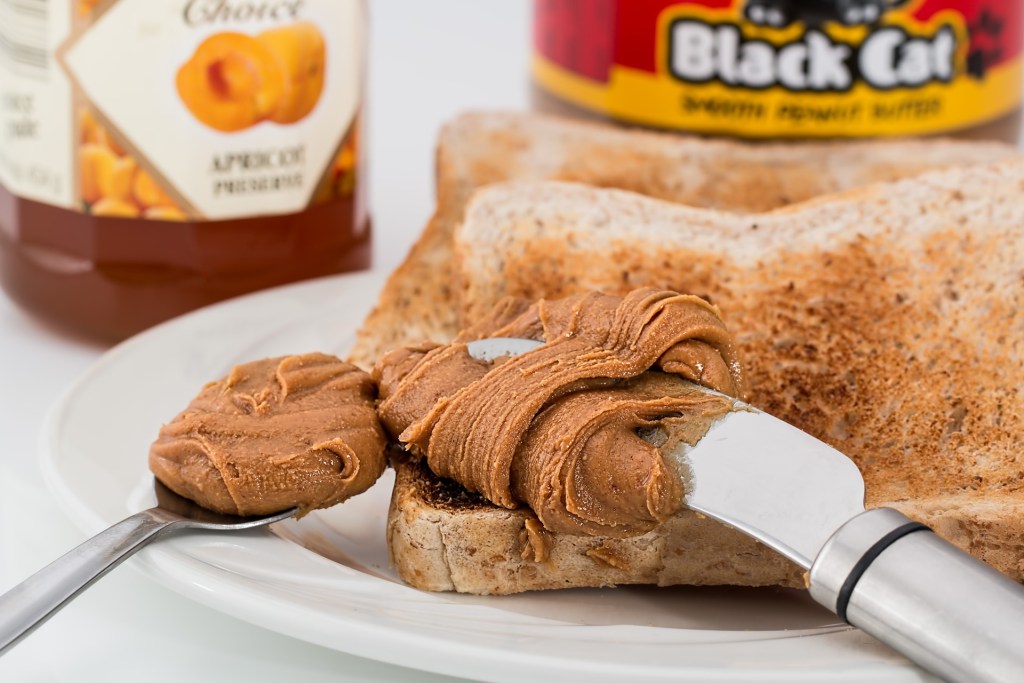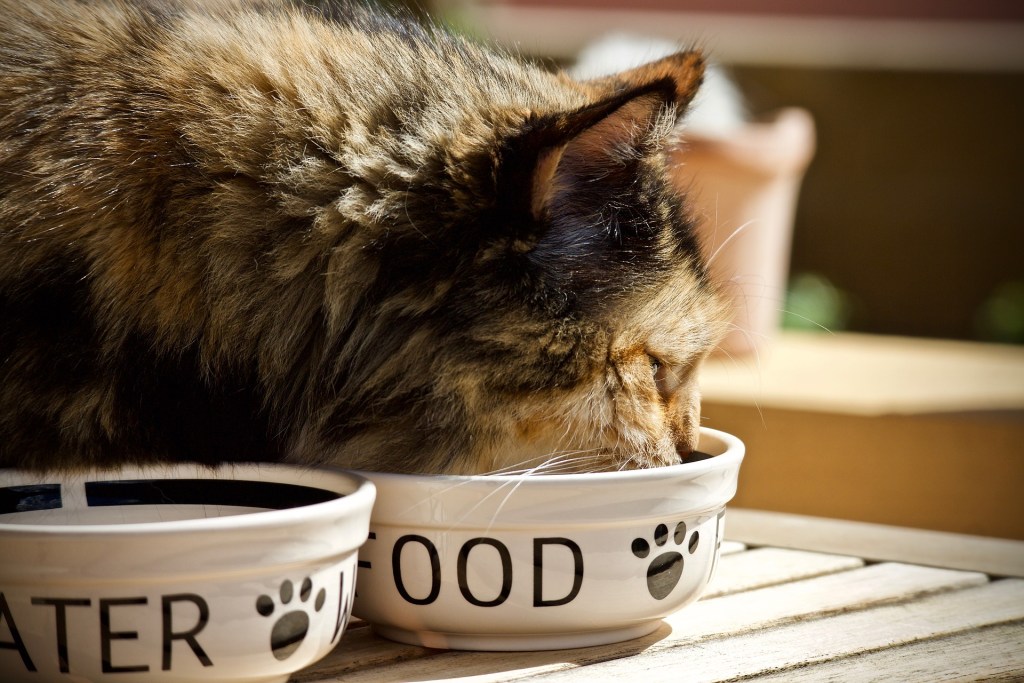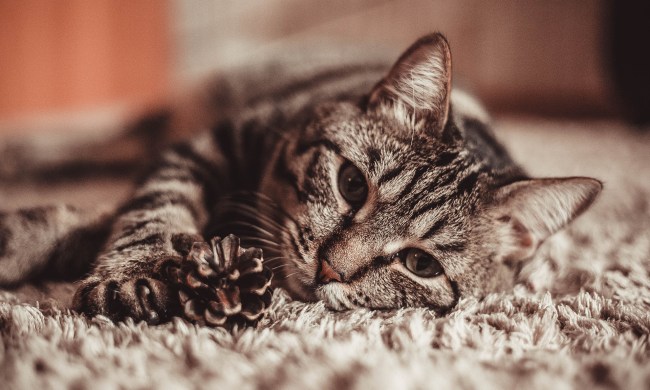It’s no secret that dogs love peanut butter, and if you have multiple pets in your home, you might be wondering if you can feed peanut butter to your cats, too. Peanut butter is tasty and delicious, so it makes sense that cats would enjoy it as a treat. But before you get the jar out, it’s important to realize that cats and dogs process foods differently, and peanut butter does have some drawbacks and dangers for cats. That doesn’t mean you can never feed it at all, but you’ll need to understand the risks so you can weigh the pros and cons of feeding peanut butter to your cat.

Is peanut butter bad for cats?
From a nutritional standpoint, peanut butter isn’t a great choice for cats. It’s full of trans-fatty acids to keep it shelf stable, but those fatty acids aren’t great for your cat’s health. Many peanut butters also feature lots of additional salt for flavor, which also isn’t great for your cat. Peanut butter is a high-calorie food, and even just a little will pack plenty of calories. If your cat is prone to weight gain, then this could contribute to an unhealthy weight.
While it’s full of calories, peanut butter lacks any significant nutritional value when fed to cats. It lacks any vitamins or minerals to support your cat’s health, and because of the risks it carries, peanut butter could actually harm your cat’s health.
Is peanut butter safe for cats?
In addition to little nutritional value, peanut butter can contain several hazards for cats.
- Some peanut butters are highly sticky, and it’s possible that your cat could have difficulty swallowing it. In some cases, peanut butter might even pose a choking hazard to your cat.
- Many peanut butters contain xylitol. Xylitol is a sugar substitute, and it’s also in foods like gum. Xylitol is highly toxic to cats and other animals, including dogs. When ingested, it can lead to vomiting, seizures, and liver failure. If you feed peanut butter to any of your pets, always make sure that the product you’re feeding is free of xylitol.
- Just like some humans are allergic to peanuts, cats can also have food allergies, and peanut butter might be one of them. You might notice symptoms like excessive itching, hair loss, and diarrhea after feeding your cat peanut butter. Peanut butter also can contribute to digestive upset in cats, potentially leading to diarrhea and vomiting.

Tasty cat treat alternatives
Feeding peanut butter to your cat as a treat isn’t a great idea since the risks and downsides outweigh the potential benefits. Some vets will recommend using a little peanut butter to coat pills, making it easier to give them to your cat. If you do this, make sure that you choose a peanut butter without xylitol, and use a minimal amount. Never leave your cat alone with the peanut butter, and watch to make sure he can swallow it fully.
If you’re looking for a tasty treat to give your cat, you’ve got plenty of alternatives to peanut butter:
- Canned pumpkin — just the pure, canned pumpkin and not the pumpkin pie filling — is nutritious and can help ease both constipation and diarrhea.
- Chicken is also a great treat for cats since it’s nutritious and supports your cat’s need for meat. Be sure that the chicken is well cooked and avoid feeding the skin.
- A little bit of salmon is another great treat for cats, as long as it’s cooked or freeze-dried. Salmon has lots of omega-3 fatty acids and protein, so it can support your cat’s health while being tasty, too.
Whether or not you decide to give your cat peanut butter, remember that any significant dietary changes can upset your cat’s digestive system. If you’re introducing a new treat, feed just a little bit each day to make the transition a gradual one. Be sure to monitor your cat for signs of an upset tummy, and if you see them, then stop feeding the new treats for a few days to give your cat’s stomach time to settle down. While the treats mentioned in this piece are generally safe to give to cats, it’s important to watch for indications of food allergies and to make sure that your cat tolerates the foods well.


